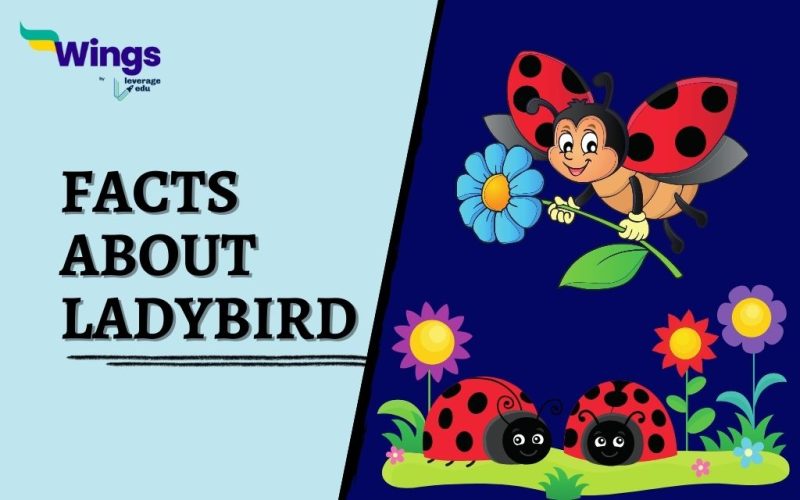If you like reading about different insects and their important role in the environment, you will certainly love reading facts about ladybird. Inside their cute and aesthetically pleasing dome-shaped bodies lie vibrant secretions to ward off potential harm and predators. Did you know many cultures consider spotting a ladybird a sign of good luck? It might have to do something with the fact that they help farmers keep off crop-eating pests. Seems intriguing? There is more to it. In this blog, you will read interesting facts about ladybird with downloadable pictures. So, if you are ready to teach your preschoolers about this interesting insect, let’s get started.
Table of Contents
Amazing Facts About Ladybirds for Preschoolers
1. There are about 5,000 species of ladybirds in the world.
2. Ladybirds are harmless to humans.
3. Ladybugs are technically ladybird beetles or lady beetles as they share more characteristics with them.
4. Seven-spot ladybirds are native to Europe. They were introduced to North America somewhere in the mid-1900s to control the population of plant-eating insects.
5. They are also known as ladybeetles or ladybugs.
6. The average lifespan of a ladybird in the world is 1-2 years maximum.
7. The maximum body length of ladybirds is up to 1 cm.
8. Their average speed is about 24 km/4.
9. Ladybirds are considered auspicious in many cultures.
10. The seven-spot ladybird with a shiny red and black body is the most common ladybird species.
11. You can also find other species of ladybirds with distinctive colours such as yellow, orange, pink, black, or brown.
12. Ladybirds are a great friend of farmers as they eat common plant-eating pests.
13. Some ladybugs also like to eat fruit flies and mites.
14. A ladybird can eat up to 5000 plant-eating insects in a year.
15. Ladybirds are characterized by their dome-shaped bodies with six short legs.
16. Depending on their species, they can have spots, stripes, or no distinctive markings on their bodies.
17. When threatened, these bugs secrete oily fluid from their joints located in the legs.
18. Ladybirds lay their eggs in small clusters on the underside of a leaf.
19. Although birds are their primary predators, they may also become a meal for spiders, frogs, wasps, and dragonflies.
Also Read: 20 Interesting Facts About Butterflies for Kids
Facts About Ladybird Larvae
1. The size and colour of ladybird larvae depend on the species.
2. Ladybird larvae grow quickly and may shed their skin multiple times.
3. When they reach their full size, they use their tails to attach themselves to a leaf. This leads to the formation of a pupa.
4. About two weeks later, the pupa becomes an adult ladybug.
Interesting Facts About Ladybird Habitat
1. They are mostly found in forests, cities, suburban areas, and alongside river banks.
2. During winter and fall, ladybugs seek protection under rocks and leaves.
3. Ladybugs are also known to undergo a type of hibernation called diapause. When they realise the arrival of winter, they live on their fat reserves until spring.
4. Ladybugs are more active in the summer and spring season. You can easily spot them on the leaves of different plants.
Download Ladybird Fact PDF
FAQs
5 interesting facts about ladybugs are that there are about 5000 species, they live up to 1-2 years maximum, they have dome-shaped bodies with six short legs, their average speed is 24 km/h, and lastly, they can have spots, stripes, or no markings at all.
One special fact about ladybirds is many cultures consider them a good luck sign. They are beautiful and harmless to humans. Farmers especially love them because they eat other plant-eating pests.
The average life cycle of ladybirds is about 1 year.
Find more informative reads here!
| Interesting Facts about Soil | Interesting Facts About Plants |
| Interesting Facts About Money Plant | Interesting Facts About Flowers |
| Interesting Facts About Insects | Facts About Grasshopper Insects |
Hope you had fun reading these interesting facts about ladybirds. If you want to know more about topics like this, then visit our Interesting Facts and General Knowledge page!
 One app for all your study abroad needs
One app for all your study abroad needs













